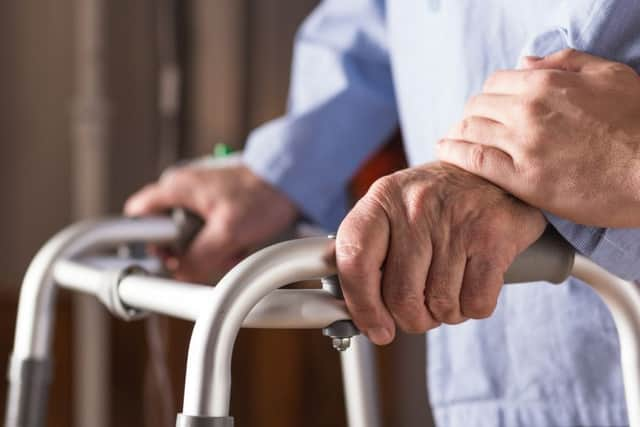Elderly people needing round-the-clock care to rise by a third
Warnings have been made that the “unprecedented” needs of an ageing population can no longer be met by relying on an army of unpaid carers who provide around £57bn worth of support.
The number of over-85s requiring 24-hour care will almost double to 446,000 in England by 2035, according research published in The Lancet Public Health. Researchers said their study highlights the importance of ensuring that health and social care services adapt to meet rising demand.
Advertisement
Hide AdAdvertisement
Hide AdThe study, carried out by Newcastle University and the London School of Economics and Political Science, found that the number of over-65s living without care needs would rise to 8.9m, a 60 per cent increase from 2015.


But estimates also show a rise in the number of people living into old age with multiple long-term conditions. Some 80 per cent of older adults with dementia and in need of substantial care in 2035 are likely to have two or more other diseases.
Professor Carol Jagger, from the Newcastle University Institute for Ageing, said people who care for their spouses are increasingly likely to have disabilities themselves. Prof Jagger said: “On top of that, extending the retirement age of the UK population is likely to further reduce the informal and unpaid carer pool, who have traditionally provided for older family members.”
The study also shows the different care needs of ageing men and women. Between 2015 and 2035, life expectancy for men aged 65 is expected to rise by 3.5 years to 22.2 years, and the average number of years spent being independent is expected to increase by 4.2 years.
Advertisement
Hide AdAdvertisement
Hide AdFor women life expectancy at 65 will increase by three years and the average number of years spent independent by less than a year, estimates show.
Warnings have been made of a pressing need to bridge a £3.5bn funding gap facing social care services by 2025. The Yorkshire Post previously revealed that the number of over-65s in the region is set to increase by 42 per cent by 2038, while the overall population rises by just six per cent
A spokesman for the Department of Health and Social Care said: “In the Autumn we will set out our plans to reform adult social care alongside our long term plan for the NHS, so we can address the challenge of our growing ageing population head on and ensure services are sustainable for the future.”